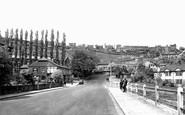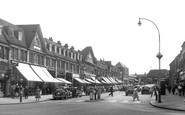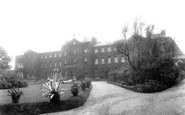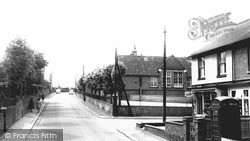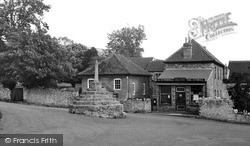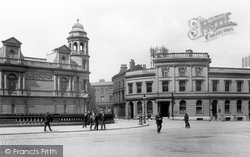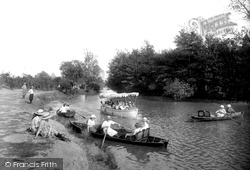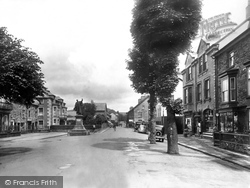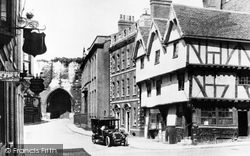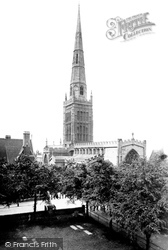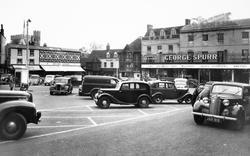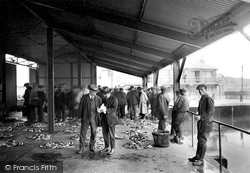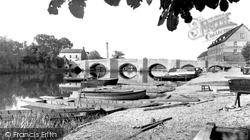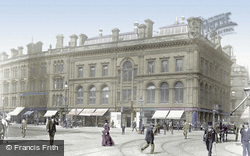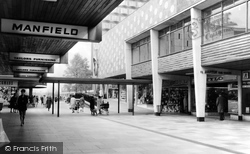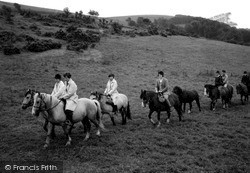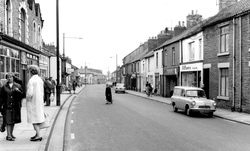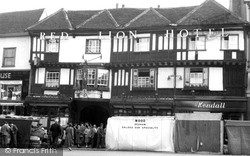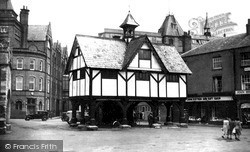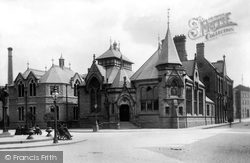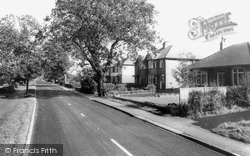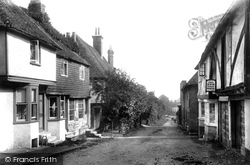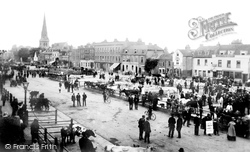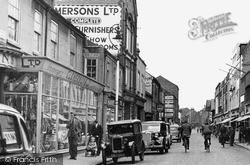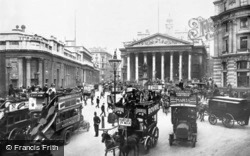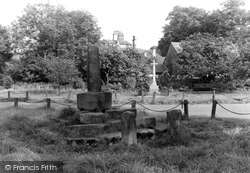Places
2 places found.
Those places high-lighted have photos. All locations may have maps, books and memories.
Photos
80 photos found. Showing results 81 to 80.
Maps
10 maps found.
Books
Sorry, no books were found that related to your search.
Memories
563 memories found. Showing results 41 to 50.
Langley 1979 83, Good Old Days
I was at Langley between 1979/83, Mr and Mrs Wright, good people, Mr Trameer and good lady daughter Alex, she'd be 31 year now, I wonder what she's doing. I haven't seen anyone from my day exept Ronnie. I've been to ...Read more
A memory of Baildon in 1880 by
Kitkburton Primary School
I attended Kirkburton First School (School Hill), prior to this I was sent to a Catholic school in Huddersfield, although living in Burton at the time, there was no comparison, Kirkburton School was like heaven ...Read more
A memory of Kirkburton in 1958 by
My Childhood Garden Part I
My mother has often said to me "You don't appreciate what you've got until you lose it". She is wrong, for I will never forget the wonderful garden of my childhood and write below the memories that I will hold for ...Read more
A memory of Shamley Green in 1954 by
My Childhood Garden Part V
Beside the strawberry bed grew a large cooking apple tree that produced enormous green apples. We had a variety of both eating and cooking apple trees in the garden, the fruit from which was harvested and then ...Read more
A memory of Shamley Green in 1954 by
Edgware Days In The 70/80's
I grew up in Edgwarebury Lane from when I was born until I was 17 and having always lived close by. I attended Boradfirlds and Edware Secondary School so fully born and bred Edgware. I loved the old days of spending ...Read more
A memory of Edgware in 1979
Fond Memories
I remember St Faith's hospital very well. I was the Head Porter there for a number of years until it was closed down. I met my wife there. She was a catering assistant. We were engaged with two other couples in the social club.That ...Read more
A memory of Brentwood in 1985 by
Dunsmore People And Happenings Remembered
PREFACE TO THE SECOND EDITION In 1995, when the first edition of this history was published, it seemed incredibly optimistic to have had three hundred copies printed for a market which ...Read more
A memory of Dunsmore by
Small Boystoys And Other Pastimes 1930s
bill.haylor@btinternet.com Resident in and around Smallfield for 81 yrs A large number of our toys were made from wood, dependant on what tools were available in fathers shed, if it was unlocked! The ...Read more
A memory of Smallfield in 1930 by
Loughton School
I remember going to school in Loughton from 1961 until 1965 when I left to start work. I would love to make contact again with anybody that remembers me from way back then, especially my friends Susan Hunter and Sandra Stock, both ...Read more
A memory of Loughton in 1961
Where I Was Born
My Beginning, at Sole Street near Cobham Kent. (9th March 1946 - 2nd January 1951) I was born on Saturday March 9th 1946 at 3.29pm at Temperley, The Street, Sole Street, Kent. I was delivered at home by the ...Read more
A memory of Sole Street in 1946
Captions
201 captions found. Showing results 97 to 120.
In the late 19th century, Melton Constable was an important railway junction with locomotive and rolling stock works; it was sometimes known as the Crewe of Norfolk.
Village stocks were once attached to this cross, which stands at the junction of roads to Wells, Draycot and Westbury.
Work started on the Oldham Joint Stock Bank (now the HSBC), on the right, in 1892, and it was officially opened on 30 September 1895.
A wonderful evocative scene of people enjoying themselves on the pond; note in particular the boat with a canopy.
This traditional market town was famous for its stocking fairs. Bala was also a centre for the manfactur of Welsh flannel and tanning.
This view looks from in front of Exchequer Gate towards the Castle.
Palmer & Co, brokers and furniture dealers, have allowed their stock to flood out almost to the centre of the street in a happy confusion that would almost certainly win them the Turner Prize.
The Market Place in 1955 - this time looking towards the churchyard.
The day's catch is auctioned. Though fish were abundant in Victorian times, Mounts Bay fishermen were possessive about their fish stocks.
This view facing the medieval bridge shows the boatyard in the foreground with the old stocking factory on the right and the bacon factory on the left.
Built in 1870, this was one of the many West Yorkshire institutes to offer working craftsmen the opportunity to study new skills and learn more about the world.
Although Basildon was burgeoning as a commercial centre, the presence of the Bankrupt Stock Clearance shop on the right indicates that not everybody was doing well.
Although Basildon was burgeoning as a commercial centre, the presence of the Bankrupt Stock Clearance shop on the right indicates that not everybody was doing well.
As the importance of farming declined, and woollen stockings – the main product of the women of Tregaron – were no longer wanted, the local population began to find other means of making an income.
Though the North East is readily identified with coal mining, shipbuilding and iron and steel, among its lesser-known industries was the construction of railway locomotives and rolling stock.
The imposing Red Lion Hotel overlooks a busy market scene. Kendall, the well-known store stocking umbrellas and rainwear, can be seen on the right.
In the 18th century, the almost picturesque group of church and school was completed by the addition of the town stocks and whipping post.
Built in the Victorian Gothic style, the Public Library opened in 1876. It was built at the expense of local MP David Chadwick, who also paid for the initial stock of 10,000 books.
Woodplumpton is recorded in the Domesday Book.
Note the rough road surface, which had not yet been modernised with tarmacadam.
In 1247 King Henry III granted Romford a charter permitting a livestock market to be held in the town every Wednesday.
Clemersons, the town's one and only department store, had started in the mid 19th century as an ironmongers.
In the 1860s the economist Bagehot described Lombard Street, that runs to the right of the Mansion House, as 'by far the greatest combination of economical power and economic delicacy the world has ever
The village is listed in the Domesday Book as Bodeton. The great age of the market cross, with its uneven steps and remains of the punishment stocks, is apparent.
Places (2)
Photos (80)
Memories (563)
Books (0)
Maps (10)

